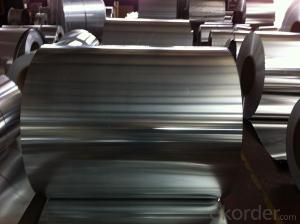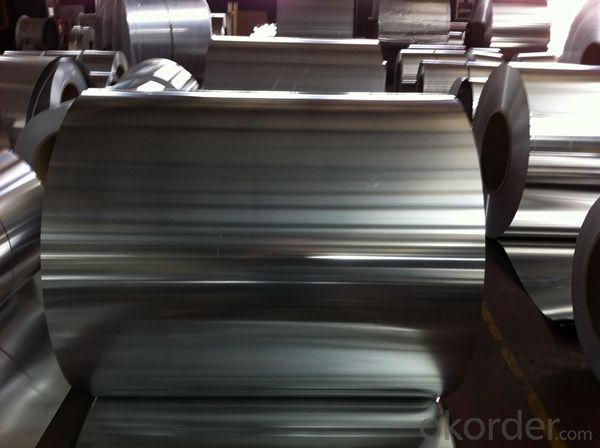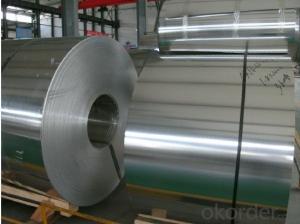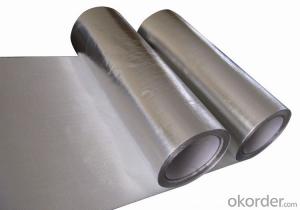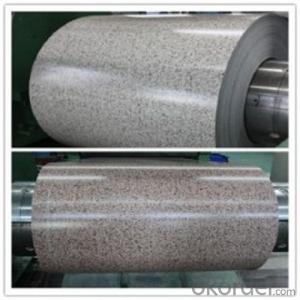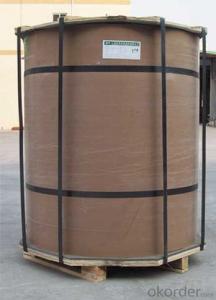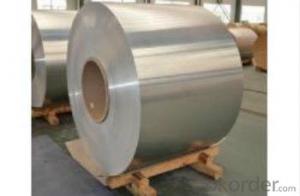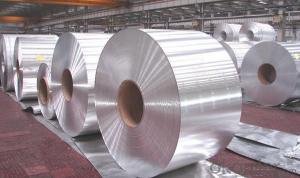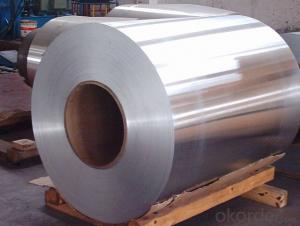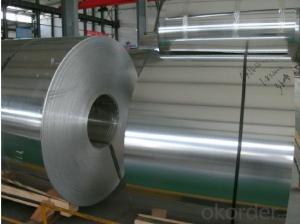6061 Aluminum Coil - Mill Finished Aluminum Coil AA1070 for Building
- Loading Port:
- Shanghai
- Payment Terms:
- TT OR LC
- Min Order Qty:
- 5 m.t.
- Supply Capability:
- 10000 m.t./month
OKorder Service Pledge
OKorder Financial Service
You Might Also Like
Specification
1. Specification of Mill Finished Aluminium Coil AA1070 for Building
characteristics | Application |
1) Super peeling strength | 1) Building exterior curtain walls |
2) Excellent surface flatness and smoothness | 2) Decoration and renovation additions for old buildings |
3) Superior weather, corrosion, pollutant resistance | 3) Decoration of interior walls, ceilings, bathrooms, kitchens and balconies |
4) Even coating, various colors | 4) Shop door decorations |
5) Fireproof, excellent heat and sound insulation | 5) Advertisement board display platforms and signboards |
6) Superior impact resistance | 6) Wallboards and ceilings for tunnels |
7) Lightweight and easy to process | 7) Industrial materials, materials for vehicles and boats |
2. Application of Mill Finished Aluminium Coil AA1070 for Building
(1).Interior: wall cladding, ceilings, bathrooms, kitchens and balconies, shutters, doors...
(2).Exterior: wall cladding, facades, roofing, canopies, tunnels, column covers , renovations...
(3).Advertisement: display platforms, signboards, fascia, shop fronts...
3. Feature of Mill Finished Aluminium Coil AA1070 for Building
• Our goods quality is top, the surface is smooth, and every steel coil
• No Joint, No Bends, no spots, no roller marks.
• MTC will be provided with goods, third part inspection is acceptable, for example, SGS, BV. Etc
Be free from Oil Stain, Dent, Inclusion, Scratches, Stain, Oxide Dicoloration, Breaks, Corrosion, Roll Marks, Dirt Streaks and other defect which will interfere with use
4. Certificate:
SGS and ROHS(if client request, paid by client), MTC(plant provided), Certificate of Origin(FORM A, FORM E, CO), Bureau Veritas and SGS (if client request, paid by client), CIQS certificate
5. Image of Mill Finished Aluminium Coil AA1070 for Building
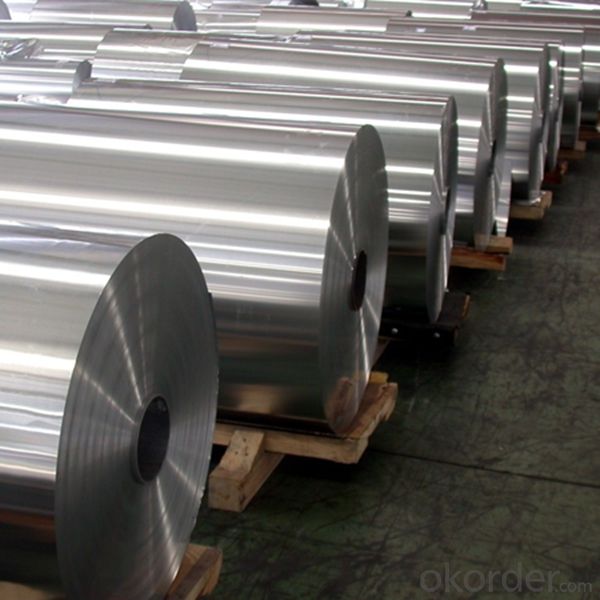
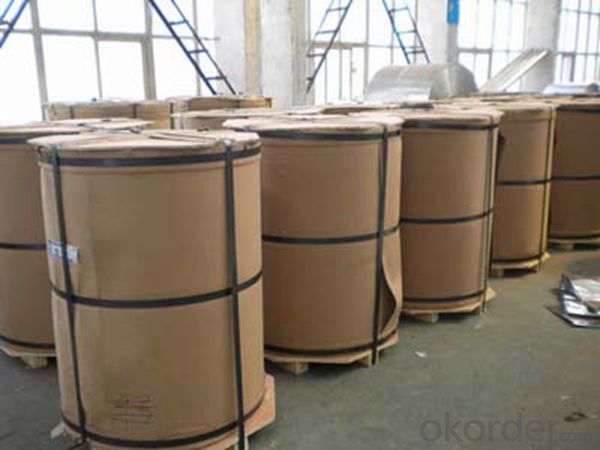
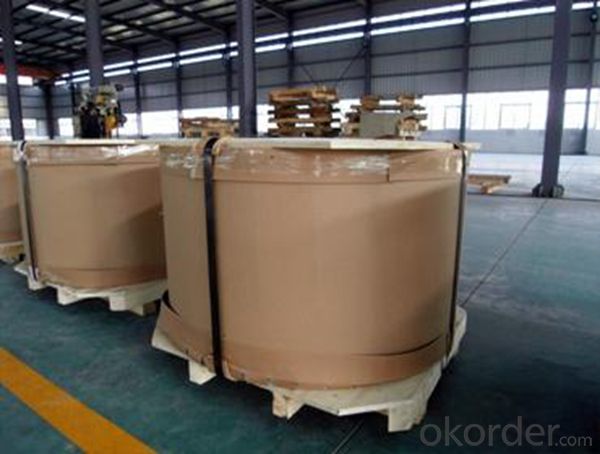
6. Package and shipping of Mill Finished Aluminium Coil AA1070 for Building
eye to wall
eye to the wall
with wood pallet (wooded case also available)
7. FAQ
1) What is the delivery time?
Dpends on actual order, around 20 to 35 days
2)What is the QC system:
We have QC staff of 20 persons and advanced equipment, each production is with MTC traced from Aluminum ingot lot.
3) What market do you mainly sell to?
Australia, America, Asia, Middle East, Western Europe, Africa etc
- Q: What is a common reaction of this element?What is another element closely related to Aluminum?Thank youuuuu.
- Al + Cl2 --- AlCl3 aluminum trichloride is an important substance used in several organic chemical reactions of indistrial importance. It is what is called a Lewis acid, something you will get to. Possibly gallium, just below it in the periodic table.
- Q: What are the proper storage methods for keeping aluminum coil in good condition?
- <p>To store aluminum coil properly, ensure a clean, dry, and well-ventilated environment. Keep the coil away from moisture and direct sunlight to prevent oxidation and discoloration. Store coils horizontally on wooden pallets or racks to avoid deformation. Maintain a consistent temperature and avoid extreme fluctuations. Use protective coverings or wrapping to shield the coil from dust and contaminants. Regularly inspect the coils for any signs of damage or corrosion and address any issues promptly.</p>
- Q: Why does aluminum foil burn in the microwave but not in the oven?
- an oven uses heat only. microwave uses a different form of energy.
- Q: Which is better - a steel roof or an aluminum roof?
- Both okorder All in all, either steel or aluminum will last over 50 years, and provides great resistance to hail, wind, fire, and rain. Aluminum will last somewhat longer, as you don't have to depend on galvanized or Galvalume coatings for corrosion resistance. Steel is much more affordable, and still lasts a very long time.
- Q: Can aluminum coils be used for electrical transmission lines?
- Aluminum coils find common use in electrical transmission lines due to their numerous advantages. Firstly, aluminum, being a lightweight material, facilitates easier and more cost-effective transportation and installation. Secondly, aluminum exhibits good electrical conductivity, comparable to that of copper. Thirdly, aluminum proves to be a more economical choice for long-distance transmission lines, as it is less expensive than copper. Nonetheless, there are certain challenges associated with employing aluminum coils in transmission lines. Notably, aluminum possesses a lower tensile strength than copper, rendering it more susceptible to sagging over extended distances. Moreover, aluminum boasts a higher thermal expansion coefficient than copper, potentially giving rise to complications related to thermal expansion and contraction. Nevertheless, through proper design and engineering, aluminum coils can be effectively and efficiently utilized in electrical transmission lines.
- Q: aluminum foil production of ERP software, requiring a comprehensive production process, and have special assistance to pre operation, the best price is reasonable
- Aluminum foil and aluminum coil production is a typical manufacturing type. With ERP, you can manage all the production processes, carry out cost accounting and voucher making, and can download the long-term trial.
- Q: What are the potential applications of stucco-embossed aluminum coils?
- Stucco-embossed aluminum coils offer a multitude of potential uses due to their distinct properties and attractive appearance. Here are some possible applications for stucco-embossed aluminum coils: 1. Construction: Stucco-embossed aluminum coils are commonly employed in the construction sector for cladding and roofing purposes. The textured pattern strengthens and enhances the durability of the aluminum, making it suitable for external applications. It can be utilized on both commercial and residential buildings to provide a visually pleasing and long-lasting finish. 2. Insulation: Stucco-embossed aluminum coils can also serve as insulation material. The textured surface increases the material's surface area, thereby improving its thermal conductivity. This makes it an excellent choice for applications where heat transfer needs to be regulated, such as HVAC systems or refrigeration units. 3. Appliances: The manufacturing of various appliances often incorporates stucco-embossed aluminum coils. The textured surface not only adds visual interest but also provides a robust and easy-to-clean finish. It can be used in the production of kitchen appliances like refrigerators, dishwashers, and ovens, as well as other household appliances like air conditioners or water heaters. 4. Transportation: Stucco-embossed aluminum coils also find applications in the transportation industry. The textured surface enhances traction, making it suitable for vehicle flooring and decking in buses, trains, and ships. It is also used for decorative purposes in the interior and exterior parts of automobiles, imparting a stylish and modern appearance. 5. Packaging: Stucco-embossed aluminum coils can be utilized in the packaging industry. The textured surface adds strength and rigidity to the material, making it ideal for manufacturing durable containers, trays, and packaging materials. It is suitable for food and beverage packaging, pharmaceutical packaging, and various other applications where a sturdy and visually appealing packaging solution is required. In conclusion, the uses for stucco-embossed aluminum coils are diverse and adaptable. From construction to insulation, appliances to transportation, and packaging to various other industries, stucco-embossed aluminum's unique properties and attractive appearance make it a popular choice for a wide range of applications.
- Q: my homework was to find out how do you get aluminium for rocks! I've been looking around but every web site i've been on only says that aluminium comes from rocks, but it doesn't say how you get it from rocks.e.g you get wool from sheep by shearing of their coat.so if anyone knows how you get aluminum from rocks please tell me i need your help.
- Aluminum is derived from a rock called Bauxite, which consists of a mixture of up to three aluminum minerals. Bascally they mine it, smelt it (heat to very high temperatures) and you get aluminum. You'll probably get a better answer form someone who is more familiar with the process, but that's a very rough idea.
- Q: Are aluminum coils resistant to fire?
- Aluminum coils are widely recognized as being fire-resistant. They possess a high melting point of 660 degrees Celsius, which is considerably higher than the typical temperature of most household fires. Consequently, aluminum coils are a favored choice for diverse applications requiring fire resistance, including the construction of buildings, electrical systems, and automotive components. Moreover, aluminum exhibits low flammability and does not emit toxic fumes when exposed to fire, further heightening its fire-resistant characteristics. Nonetheless, it is vital to acknowledge that the fire resistance of aluminum coils may vary depending on the specific alloy employed and the thickness of the coil. Hence, it is always advisable to seek advice from experts or adhere to industry standards to guarantee the implementation of appropriate fire safety precautions.
- Q: A cube of solid aluminum has a volume of 1.00 m3 at 20°C. What temperature change is required to produce a 130 cm3 increase in the volume of the cube?
- The linear expansivity of aluminum is 23 x10^-6 /K. Bulk expansivity is 3 x 23 x10^-6 / k For 130 [cm^3] the temperature required is 130 [cm] ^3/ 3 x 23 x10^-6 = 0.00013/[3 x 23 x10^-6] = 1.88 K ========================= If each side of the cube of side 1m expands by e, then its new volume = [1+e]^3 = 1 + 3e + 3e^2 +e^3. Neglecting high powers of e as negligible, the increase in volume is 3e. But e = 23 x10^-6 x rise in temperature 3e = 3*23 x10^-6 x rise in temperature. Given 3e = 0.00013 0.00013= 3*23 x10^-6 x rise in temperature Rise in temperature = 0.00013 / 3*23 x10^-6 = 1.88 K
Send your message to us
6061 Aluminum Coil - Mill Finished Aluminum Coil AA1070 for Building
- Loading Port:
- Shanghai
- Payment Terms:
- TT OR LC
- Min Order Qty:
- 5 m.t.
- Supply Capability:
- 10000 m.t./month
OKorder Service Pledge
OKorder Financial Service
Similar products
Hot products
Hot Searches
Related keywords
